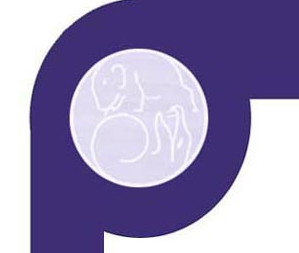 Totalitarianism and Democracy has removed a paper claiming that German Shepherds belonging to guards at the Berlin Wall descended from dogs used at concentration camps, after learning that the paper was a work of satire, The Guardian reports.
Totalitarianism and Democracy has removed a paper claiming that German Shepherds belonging to guards at the Berlin Wall descended from dogs used at concentration camps, after learning that the paper was a work of satire, The Guardian reports.
The paper, and its author, are the creation of the anonymous group “Christiane Schulte and friends.”
This isn’t the first hoax we’ve seen in publishing: Don’t forget journalist John Bohannon, who submitted hundreds of fake papers to open access journals, and more recently conjured up a study that showed chocolate helps you lose weight. (And, of course, a paper in a Romanian magazine that listed porn star Ron Jeremy and Michael Jackson among its references.) Like many other hoaxers, the group say in a statement their purpose was to shine light on problems in academic publishing.
The latest victim: a Dresden-based journal, The Guardian explains:
In a statement published this week, the editorial team at the Hannah-Arendt Institute for Research into Totalitarianism said they had been “systematically deceived, ie through a faked CV and an apparently academic argumentation, which sought to convince the reader with detailed explanations, extensive footnotes and false archival references”. Christiane Schulte did not exist, and nor did the alsatians with totalitarian tendencies.
The underlying point the authors were trying to make was a rather erudite one:
The intention of the article, they said, had been to satirise the “animal turn” in postmodern theory: the attempt to interpret historical events through the perspective of affected animals. Such academic fashions, the group wrote, were “the waste products of leftist social critique which has sought refuge in academia”, but also signs of an “anti-humanist trend in philosophy”. While academics were competing with each other to follow the latest trend, they were failing to do the basic work of criticising social conditions.
A statement in German on the journal’s website (which we deciphered via Google translate) explains that an anonymous group deceived them with the fake CV and a seemingly scientific argument.
The Guardian explains what the paper purported to reveal:
The first fatality at the Berlin Wall, it showed, had not been human but a police dog called Rex. And a new law forcing East German border guards to keep their canine enforcers on a lead helped prevent a third world war.
Most shockingly, the 26-year-old PhD student revealed that the alsatians that patrolled the Berlin Wall were direct descendants of those deployed by the Nazis in Buchenwald and Sachsenhausen concentration camps, thus maintaining a “tradition of violence”.
The journal asked “Schulte” to publish the paper after she presented the findings at a conference. The Guardian talked to Florian Peters, a researcher at Berlin’s Institut für Zeitgeschichte, who was at the conference, and
confirmed that the talk had not been perceived as a satire at the time. The woman pretending to be Christiane Schulte had convincingly passed as a postdoctoral student but left the event soon after delivering her paper. “As a satire, it has certainly hit the spot, particularly among some of the more established historians in the field,” Peters told the Guardian.
The practice of hoaxing is associated with the work of a physicist in the 1990s, notes the Guardian:
The affair is reminiscent of a hoax by the physics professor Alan Sokal in 1996, who had submitted a paper to a journal of postmodern cultural studies knowing that it was “liberally salted with nonsense” but flattered the ideological orientation of the journal’s editors.
Some argue that satire can be damaging if it’s not deployed carefully. In 2014, researchers argued that spoofs that aren’t clearly marked as such can hurt science’s integrity. A recent STAT column by our co-founders Adam Marcus and Ivan Oransky considered the same issue regarding a recent tongue-in-cheek paper in the Journal of Evaluation in Clinical Practice describing a randomized trial showing kisses don’t help boo-boos; the editor was in on the joke, but not all readers were. Marcus and Oransky note that bogus scientific articles can “sow distrust when they’re not clearly marked as satire:”
In an era when public trust in science is under siege from some quarters, why give the anti-science crowd ammunition?
Hat tip: @Jules_Montague
Like Retraction Watch? Consider making a tax-deductible contribution to support our growth. You can also follow us on Twitter, like us on Facebook, add us to your RSS reader, sign up on our homepage for an email every time there’s a new post, or subscribe to our new daily digest. Click here to review our Comments Policy.